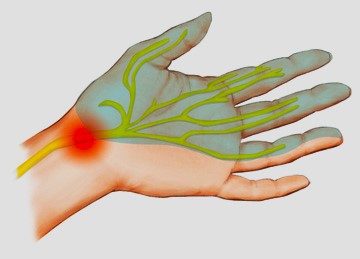Nerve Damage to the hand can profoundly impact an individual’s life, causing not just significant pain but also potentially affecting one’s ability to work and perform daily activities. When it comes to seeking compensation through a lawsuit, the settlement value is influenced by several critical factors:
- Severity of Injuries.
- Permanent Damage.
- Occupation.
- Contributory Negligence.
Nerve damage to the hand can result from various incidents, including auto accidents, workplace accidents, medical malpractice, slips and falls, and dog bites. Each of these scenarios presents unique challenges in proving negligence, establishing liability, and quantifying damages. It’s crucial to document the injury, its impact on your life, and all related expenses meticulously.
Does the severity of a hand/nerve injury affect a nerve damage settlement?
Yes, the severity of a hand or nerve injury significantly affects the settlement amount in a nerve damage case. The principle behind this is straightforward: more severe injuries usually lead to higher medical expenses, longer recovery periods, and, in many cases, long-term or permanent impacts on the victim’s quality of life and ability to work. These factors collectively justify a higher settlement value.
For instance, a case involving carpal tunnel syndrome, which may require surgery and extensive physical therapy, is likely to settle for more than a case involving a mild pinched nerve that might only need short-term treatment and has no lasting effects. The rationale is that more severe injuries not only incur higher medical costs but also significantly affect the victim’s life in terms of chronic pain, suffering, and possibly permanent disability.
Insurance companies and attorneys understand that severe nerve injuries can be debilitating and often result in substantial financial, physical, and emotional burdens on the victim. Therefore, settlements are generally higher to compensate for these extensive damages.
The medical field categorizes nerve damage into three general types, reflecting the severity of the injury:
- Neurapraxia: This is the least severe form of nerve damage, where the nerve remains intact, and the injury usually recovers fully with time.
- Axonotmesis: Represents moderate nerve damage and often results in permanent loss of motor and sensory functions due to the damage to the nerve’s axon, though the surrounding connective tissue structures remain intact. Recovery may be possible but can be incomplete.
- Neurotmesis: The most severe form of nerve damage, where the nerve is completely severed, leading to permanent damage and loss of function. Surgical intervention may be required, but full recovery is often not possible.
Each category of nerve damage carries different implications for treatment, recovery, and long-term prognosis, which in turn influences the settlement value.
Does permanent damage affect settlement amounts?
Yes, permanent damage significantly impacts settlement amounts in personal injury cases, including those involving nerve damage. When victims suffer permanent injuries, they are entitled to both economic and non-economic damages, which collectively contribute to a higher settlement value.
Economic Damages
These are quantifiable costs directly resulting from the injury:
- Medical Expenses: Including past and future medical treatments, surgeries, medication, physical therapy, and any other healthcare services required for the injury.
- Lost Wages: Compensation for the time the victim was unable to work due to their injuries.
- Lost Earning Capacity: If the injury impacts the victim’s ability to earn in the future, compensation can include the difference between the victim’s pre-injury and post-injury earning potential.
Non-Economic Damages
These damages compensate for the intangible, subjective losses due to permanent injuries:
- Emotional Distress: Compensation for the psychological impact of the injury, including anxiety, depression, and PTSD.
- Inconvenience: Covers the disruption to the victim’s daily life, including the need for assistance in personal care or routine tasks.
- Loss of Quality of Life: Compensation for the decline in the victim’s enjoyment of life, including the inability to engage in hobbies, sports, or other activities they enjoyed before the injury.
Settlements that include awards for non-economic damages tend to be larger because they acknowledge the broader impact of the injury on the victim’s life beyond just financial losses. The concept here is to compensate the victim fully for the permanent changes and limitations imposed by their injuries.

Will I occupation affect a settlement amount?
Yes, your occupation significantly influences the settlement amount in a nerve injury claim, particularly when your job requires manual dexterity, precision, or extensive use of your hands. This influence is due to the injury’s impact on your ability to perform your professional duties and, consequently, on your earning capacity.
Impact of Occupation on Settlement
- Long-term or Permanent Injury: If the nerve damage in your hand is long-term or permanent, it can severely affect your professional life, especially if your occupation demands fine motor skills or physical labor.
- Occupations Requiring Hand Use: Professions such as electricians, massage therapists, surgeons, musicians, and craftsmen rely heavily on hand function. Nerve damage in such fields not only diminishes the quality of work but may also necessitate a career change, contributing to higher settlements.
- Dominant Hand Involvement: The injury’s impact on your dominant hand is another critical factor. Damage to the dominant hand usually results in greater compensation due to the significant inconvenience and limitations it imposes on both professional and personal activities.
Economic and Non-economic Damages
- Economic Damages: Nerve damage claims often include compensation for direct financial losses, such as medical expenses for treatments, surgeries, rehabilitation, and lost wages due to time off work or reduced earning capacity.
- Non-economic Damages: Permanent injuries may warrant compensation for non-economic damages, including emotional distress, inconvenience, and loss of quality of life. These damages acknowledge the injury’s impact beyond measurable financial losses.
Legal Advice
Seeking legal advice from a personal injury attorney is crucial for accurately assessing and maximizing your claim. An experienced lawyer can:
- Evaluate the full extent of your damages, both economic and non-economic.
- Navigate the legal process, ensuring you meet all critical deadlines and procedural requirements.
- Negotiate with insurance companies or opposing parties to secure a settlement that truly reflects the impact of your injury.
Do settlement amounts vary depending on if I helped contribute to an accident?
Yes, settlement amounts can indeed vary if you contributed to the accident that caused your injury. This variation is due to the principle of comparative negligence, which is applied in most states to determine compensation in accidents where multiple parties share fault.
Comparative Negligence Explained
Under comparative negligence laws, you can still receive compensation even if you were partially at fault for the accident. However, the compensation amount you are eligible to receive will be reduced by your percentage of fault. This rule ensures that the financial responsibility for damages is allocated in proportion to each party’s degree of fault in the accident.
Impact on Settlement Amounts
- Reduction in Compensation: If you are found to be partially responsible for the accident that led to your nerve injury, the total amount of compensation you can receive will be decreased accordingly. For example, if you are awarded $100,000 in damages but are found to be 30% at fault, your settlement would be reduced by 30%, leaving you with $70,000.
- Liability and Settlement Negotiations: The determination of fault and the assignment of a percentage of liability become critical factors in settlement negotiations. Both sides will assess the evidence and argue for a favorable interpretation of fault to influence the settlement amount.
- Documentation and Evidence: Proper documentation and evidence are crucial in these cases to accurately establish fault and defend against claims of comparative negligence. This can include police reports, witness statements, medical records, and expert testimony.
Legal Representation
Given the complexities of comparative negligence and its impact on settlement awards, consulting with a personal injury attorney becomes even more important. An experienced attorney can:
- Help accurately establish fault and liability.
- Negotiate with insurance companies or opposing counsel to ensure your percentage of fault is fairly assessed.
- Work to maximize your compensation despite any contributory negligence on your part.
Navigating the nuances of comparative negligence requires a nuanced understanding of the law and strong negotiation skills, highlighting the value of skilled legal representation in personal injury cases.




